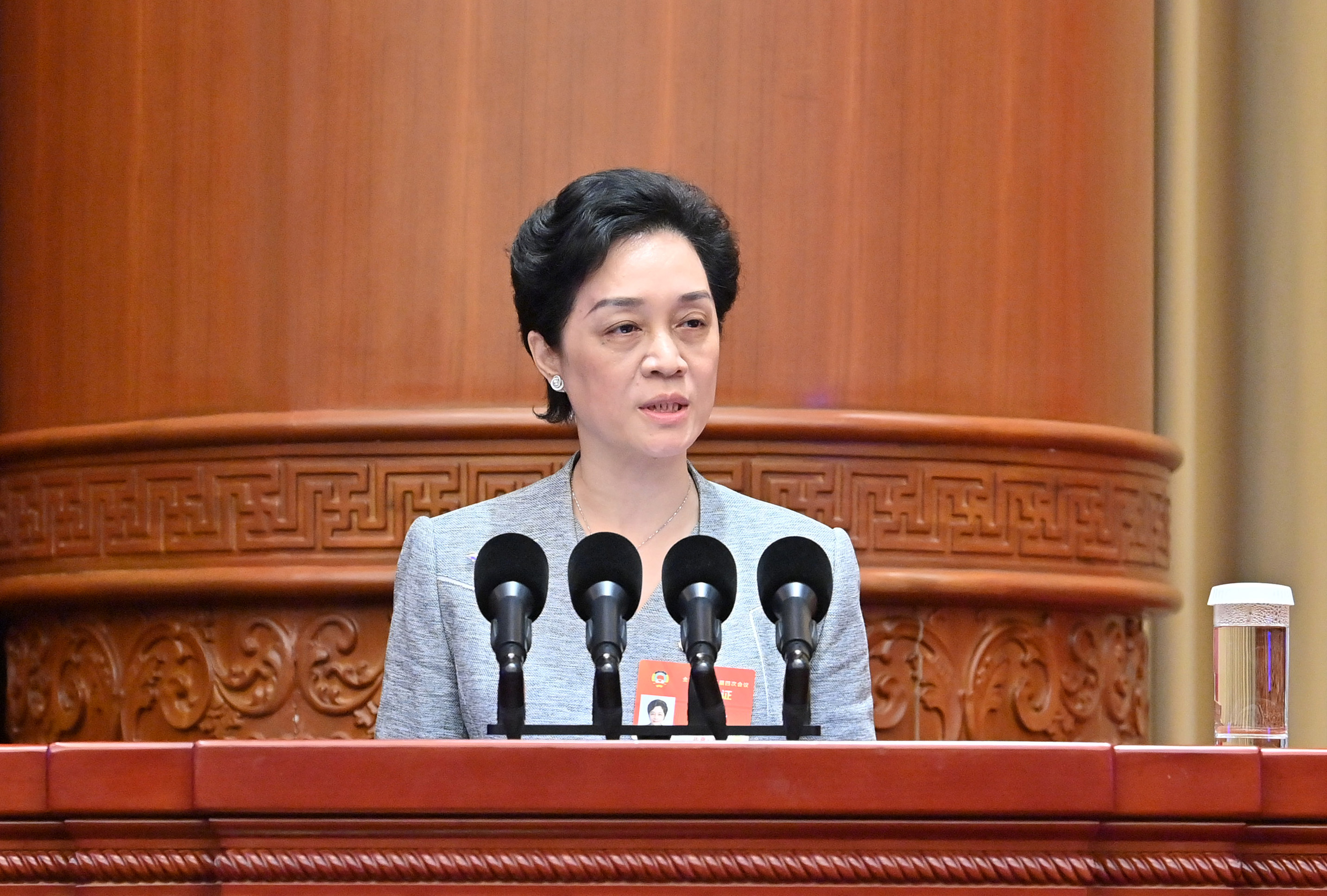CPPCC member calls for more attention on adolescent mental health
- By Zhu Bochen
 0 Comment(s)
0 Comment(s) Print
Print E-mail China.org.cn, March 11, 2021
E-mail China.org.cn, March 11, 2021

Tao Kaiyuan, a member of the 13th National Committee of the Chinese People's Political Consultative Conference (CPPCC), has called on society to pay greater attention to teenagers' mental health during the 14th Five-Year Plan period.
Tao, who is also the vice president of the Supreme People's Court, noted that mental health issues among adolescents have increased in China in recent years, especially in 2020 when extreme incidents apparently linked to teenagers' psychological problems were consistently found in news reports.
According to Tao, mental health problems among Chinese teenagers are largely caused by three factors. These include the intense and growing academic burden, negative influence from adults due to the involution of Chinese society and harmful information found on the internet, and the lack of professional psychological support both in and outside schools.
"Although our younger generation used to rank high in the International Student Assessment, there are reports now showing that Chinese students are facing mounting academic pressure and are not happy with their lives," Tao said during a video conference on March 8 at the fourth session of the 13th CPPCC National Committee.
Tao believes that in a fast-changing society with excessive competition, anxiety among adults caused by involution will inevitably be transferred to teenagers.
Given the seriousness of the issue, Tao called for more educational reform efforts concerning school environments and evaluation mechanisms. She urged schools to help students achieve self-development via group-based cooperative activities rather than individual competition, to build teenagers' self-esteem and improve their ability to appreciate others.
Tao also suggested fostering a healthy cyberspace environment for teenagers and developing devices that can filter and block harmful content and limit the amount of time that they spend online.
The national political advisor noted that support mechanisms for teenagers' mental health should also be put in place which connects schools, families, and society. Specifically, there should be more professional courses offered to teachers regarding adolescent psychology as well as more certified teachers knowledgeable in mental health in primary and middle schools across China. Meanwhile, parents are encouraged to abandon utilitarianism in family education and to expose children to a broader understanding of success.
"An early warning platform should be established in our society for teenagers demonstrating extreme behaviors in order to find those suffering from psychological distress and provide professional assistance in a timely manner," Tao added.
But her suggestion on the early warning platform has sparked heated discussion on Zhihu, China's Quora-like Q&A platform. While many agreed that such a platform would indeed be helpful, others expressed concerns over teenagers' right to privacy and data security.
"If the platform is designed to prevent teenagers' extreme behaviors by monitoring their data, then we need to think as to whether this constitutes a violation of their privacy," one Zhihu user stated. "I think we should put more focus on the education side and provide positive guidance for teenagers to prevent extreme behaviors arising from the source."






Go to Forum >>0 Comment(s)